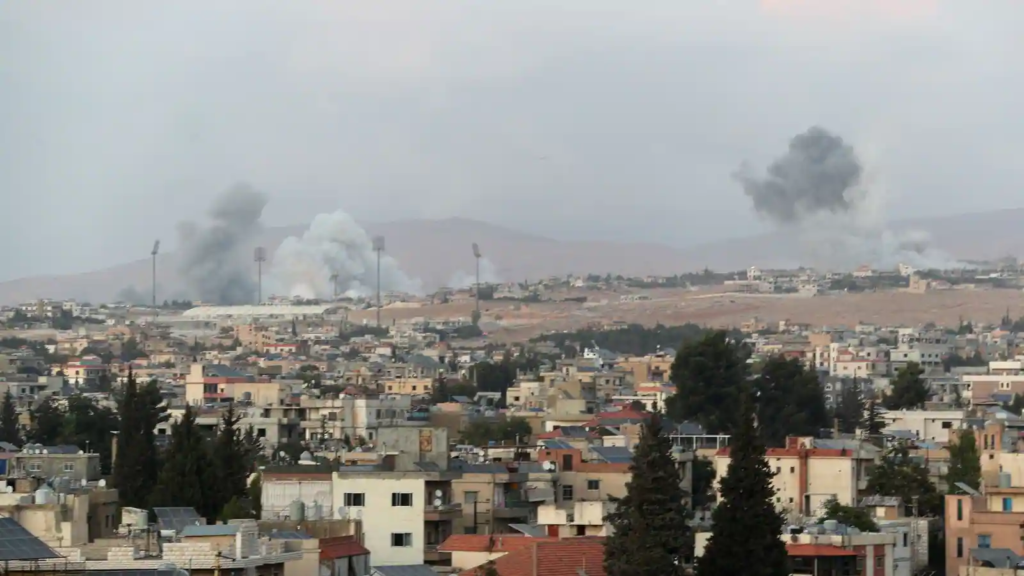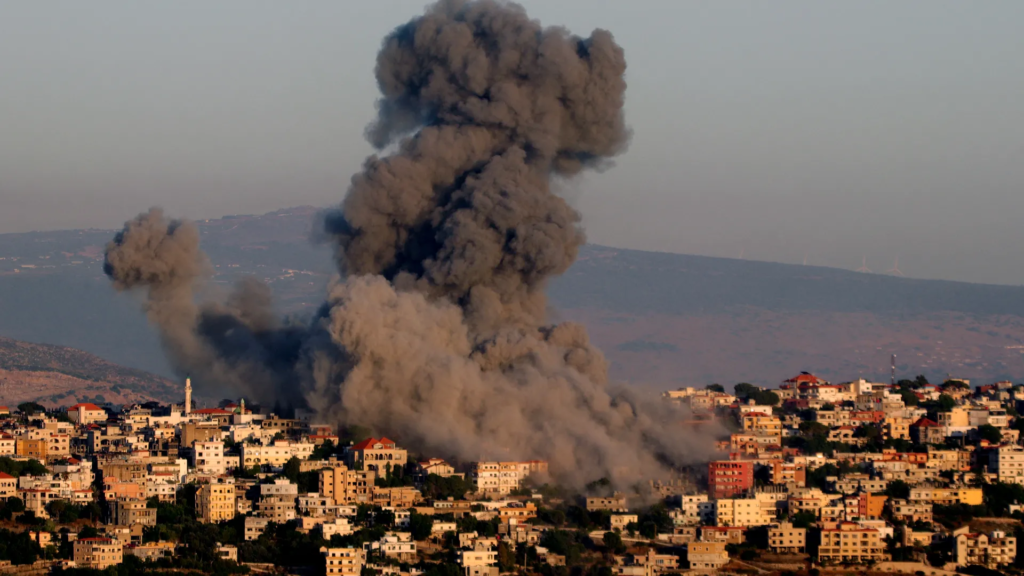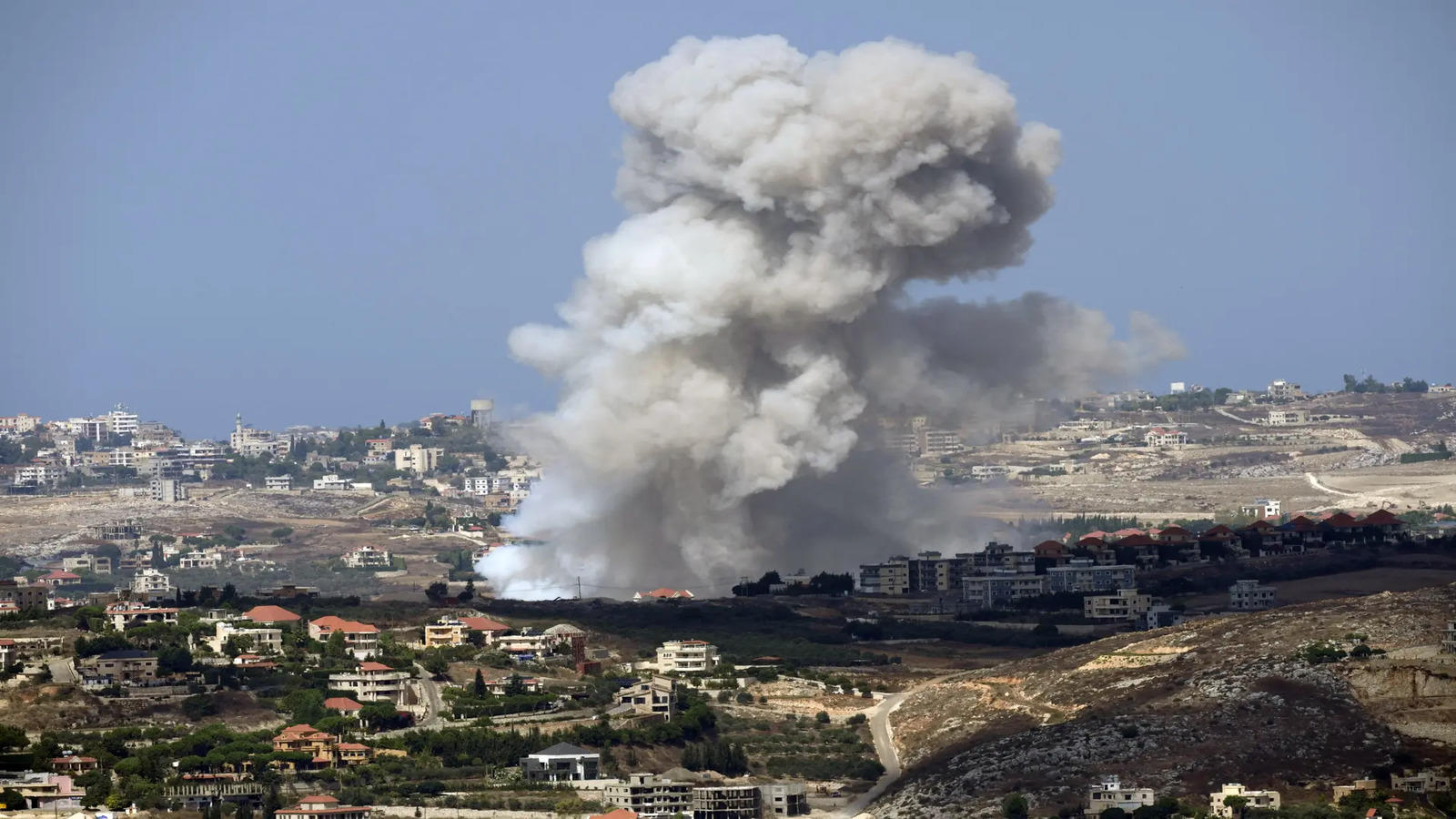Israel launches 300 strikes on Hezbollah targets as the conflict in Southern Lebanon escalates dramatically. The Israel Defense Forces (IDF) conducted an extensive bombardment on September 23, targeting over 300 sites associated with Iranian-backed Hezbollah.
This military operation marks a significant increase in Israel’s air campaign, with the most geographically widespread bombing executed since the war’s beginning.
As Israel launches 300 strikes, military spokesperson Daniel Hagari has warned residents of southern Lebanon to keep their distance from Hezbollah positions to avoid potential harm.
The airstrikes come amidst some of the heaviest cross-border exchanges of fire that have been seen in nearly a year of conflict. Lebanon’s officials report that the Israeli airstrikes have resulted in at least 100 fatalities, compelling citizens to evacuate their homes.
Read : Lebanese Journalist Injured by Israeli Strike During Live Broadcast : Watch
In the wake of these events, Israel launches 300 strikes while residents of southern Lebanon are forced to pack their belongings and flee amid the chaos and destruction.
Read : Israeli Foreign Minister Threatens Iran, Saying It ‘Deserves to Be Destroyed’
A Grim Toll on Civilians
On a particularly tragic day, missiles rained down on southern Lebanon early Monday morning, reportedly killing more than 490 people. This day has been described as the deadliest day of fighting between Israel and Hezbollah since the 2006 conflict, with the Lebanese health ministry confirming that many casualties included children and women.
BIG- Isarel starts massive attacks on Hezbollah, 300 locations struck
— Frontalforce 🇮🇳 (@FrontalForce) September 23, 2024
This is heaviest Israeli bombing on Hezbollah since 2006pic.twitter.com/9hVeiUwf24
Israel launches 300 strikes in an attempt to dismantle Hezbollah’s military infrastructure, but the human cost of these operations is significant.
Israel claims it is targeting weapons hidden in residential buildings, further escalating tensions as civilians find themselves in the crossfire. As Israel launches 300 strikes, the call for civilians to evacuate intensifies, but many are unable to leave their homes, leading to catastrophic consequences.
Retaliation and Ongoing Conflict
In retaliation to Israel’s extensive military operations, Hezbollah has vowed to respond, blaming Israel for a series of explosions involving pagers that resulted in civilian deaths and injuries.
As tensions mount, Hezbollah has launched its own attacks, firing rockets and drones into northern Israel. The conflict continues to escalate as Israel launches 300 strikes while Hezbollah engages in retaliatory measures, maintaining a cycle of violence that shows no signs of abating.
Hezbollah’s promise of retaliation adds another layer of complexity to an already volatile situation. As Israel launches 300 strikes, the potential for further escalations in hostilities looms large.

Reports indicate that numerous rockets were fired from Lebanon towards Israel, though many were intercepted or fell in open areas.
Humanitarian Crisis Unfolds
The consequences of the ongoing conflict have led to a significant humanitarian crisis in Southern Lebanon. As Israel launches 300 strikes, thousands of civilians are displaced, facing dire living conditions amid the destruction.
Infrastructure is strained, and hospitals are overwhelmed with casualties. The urgent need for medical supplies and humanitarian assistance is growing more pressing by the hour.
With residents fleeing the violence, the situation is dire. International organizations have raised alarms about the worsening humanitarian situation, and calls for ceasefires and negotiations have increased.
However, the immediate needs of those affected by the conflict remain unmet as Israel launches 300 strikes and the violence continues.
International Response
The ongoing military operations by Israel have drawn international attention and concern. Countries and humanitarian organizations have urged both sides to exercise restraint and prioritize the protection of civilians.
As Israel launches 300 strikes on Hezbollah targets, the international community is faced with the challenge of navigating a complex conflict with deep-rooted historical tensions.

Diplomatic efforts may be necessary to prevent further escalation, but the realities on the ground remain grim. The international community’s response will be critical in shaping the future trajectory of the Israel-Lebanon war and alleviating the suffering of those caught in the crossfire.
As the situation unfolds, Israel’s strategic military decisions will have significant implications for the region. Israel launches 300 strikes in an effort to dismantle Hezbollah’s capabilities, but the long-term effects of these actions are uncertain.
The complexities of the conflict, influenced by external factors such as Iran’s involvement and the broader regional dynamics, will continue to shape the path ahead.
In conclusion, the current conflict exemplifies the precarious nature of security and stability in the region. As Israel launches 300 strikes on Hezbollah targets, the human cost continues to rise, and the need for a comprehensive resolution becomes increasingly urgent.
The international community must remain engaged and vigilant as the situation develops, seeking ways to address the underlying issues that fuel ongoing hostilities.

